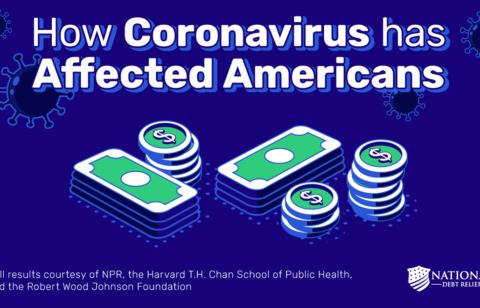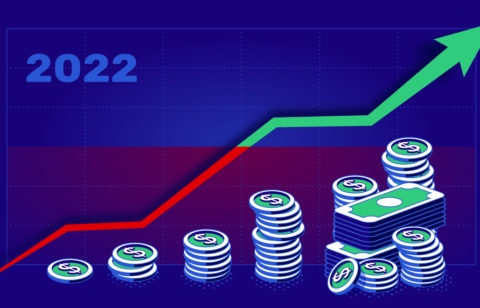Did you know that majority of Americans are earning more income compared to 5 years ago? This is according to the data revealed by Gallup.com. When asked about their current financial situation, 68% of the respondents said that they are earning more compared to 5 years ago. Only 11% said that they earned the same amount while 20% said they earned less.
This is actually great news for a lot of Americans. The cost of living continues to rise and a higher income would mean more money to spend for everyday living expenses. It would mean more chances of improving the current financial position.
Then again, you need to ask yourself – what happens next? Now that you are earning more income, what should your next steps be?
While the decision to spend your salary is entirely up to you, this should never be done lightly. To maximize the benefits of earning more income, you have to plan how you will use it. You should not be quick to increase your spending. You have to determine what areas in your financial life will benefit the most from this increase in income.
3 ways you can use your extra income wisely
The truth is, there is no right or wrong when it comes to spending your salary. As long as the spending stays within your limit and not into debt, then it does not matter where you will put the extra money. But if you want to get tips on how you can be wise about any raise in your salary, here are three smart financial moves for your extra income.
Build up your emergency fund.
There is no question about it – you cannot live without an emergency fund. If you want your finances to be strong and secure, this is a must. This is the money that you will use in case of an unexpected expense. That means an expense that you did not plan and thus is not included in your budget. This is your reserve fund for emergency expenses like a busted transmission or a trip to the ER.
Most of the time, this is what puts people in the red in their finances. But if you are prepared for unexpected expenses, you do not have to worry about the future. You know that you have the money to spend to fix your car or your house. You do not have to think twice about getting medical help because you know that you have put aside some money to help you pay for it. As your emergency fund grows, the more you feel secure with the knowledge that you have the ability to face an unexpected financial problem which might come your way. These do not come announced and more often than not, catch people off-guard.
Pay off debt.
The second way that you can be smart about earning more income is to use to pay off your debt. To be specific – your high-interest debts. According to the data from Fool.com, the average household in America owes $90,000 in debt. This includes mortgages, credit cards, car loans, student loans, etc. Take note that this amount considers all households – including those who do not have any debt. If you only include the American households who are in debt, the average goes up to $130,000. The data also revealed that this amount of debt costs the average household $6,600 in interest. That is the amount of money that you pay for using credit.
Instead of using it to grow your finances, it only makes your creditors and lenders richer. This is why any extra income that you will make should go to your debt payments. You will not only get out of debt faster, you can also save a lot of money in terms of interest.
Invest your money.
Finally, you should seriously think about investing your money. Make your income work hard for you. This is possible through investments. Learn about the power of compound interest. As you put your money in any type of investment, you are forcing it to earn interest which you can use to increase your net worth. Most people seem to understand this concept as CNBC.com shares that about 90% of consumers would intentionally save or invest a part of their money. At least, this is what they plan to do if they were to get their hands on windfall money. That is comforting to know because it shows that American consumers are smarter when it comes to their finances.
What not to do with a higher income
If there is a list of what you should do after earning more income, you can bet that there is a list of what you should not do. Here are two things that you should think twice before you do.
Immediate lifestyle upgrade.
Lifestyle inflation is one of the more common financial pitfalls consumers tend to make as soon as they start earning more income. Let us be clear: there is nothing wrong about wanting to upgrade your lifestyle. After all, this is the reason why we are working so hard every day. However, you need to be cautious about it. Do not immediately buy a new house thinking that you can afford the monthly mortgage of a bigger property. You should not be quick to buy a new car – especially if you will borrow money to buy it. You need to consider carefully the expenses that would benefit from your income increase before you actually proceed with it.
Buying more “stuff”.
You should also be cautious of buying more items. The truth is, it is okay to give yourself a reward. If you think that you deserve that new pair of shoes or a new designer bag – then go ahead. But do not make a habit out of it. Otherwise, you might end up overspending. Before you buy anything, think about what that product would mean to you after a year or so. If you want a reward, a trip for the family or a day at the spa is probably more preferable than just accumulating stuff. This is especially true if you only want to buy these things so you can appear more affluent. You do not have to prove anything to anyone. Make smarter choices about what you will purchase after earning more income.
These two are not really that bad but they have to be done in moderation. And before you think about them, make sure you consider your emergency fund, debts, and investment options first. Once the first three are met, then you can consider a modest lifestyle upgrade or a well-deserved reward.
Common questions about earning income
Question: How do I start earning income online?
Answer: There are various options to earn online – it really depends on what you can do. Some people earn extra money by setting up online shops. Other people earn through freelancing. Figure out what you want to first before you decide so you can narrow your options.
Question: How do I start earning income without a job?
Answer: It helps to look at your strengths and go from there. If you are good at baking, you can bake batches of cookies or cakes to sell. If you are good at arts and crafts, you can create products to sell online. In case you lose your job and you need to earn money, look into your habits. It can be a simple gardening job or a babysitting job.
Question: What are my options to earning income at home?
Answer: You can choose to earn through online jobs or an online store. You can also choose to sell products that you can create at home (e.g. baking or arts and crafts). It is possible for you to set up a business from your own house.
Question: How can I start earning income from a hobby?
Answer: First of all, you need to check if there is a market for any product or service that will come out of your hobby. Once there is a market, you need to figure out what would make them want to avail of what you offer. Then you can package your hobby to increase the chances of profiting from it.
Question: Is it possible to earn income during retirement?
Answer: Yes it is. There are special jobs for seniors that take into consideration your age and physical abilities. There are also companies who can hire you for consultation purposes – if you wish to continue working.








